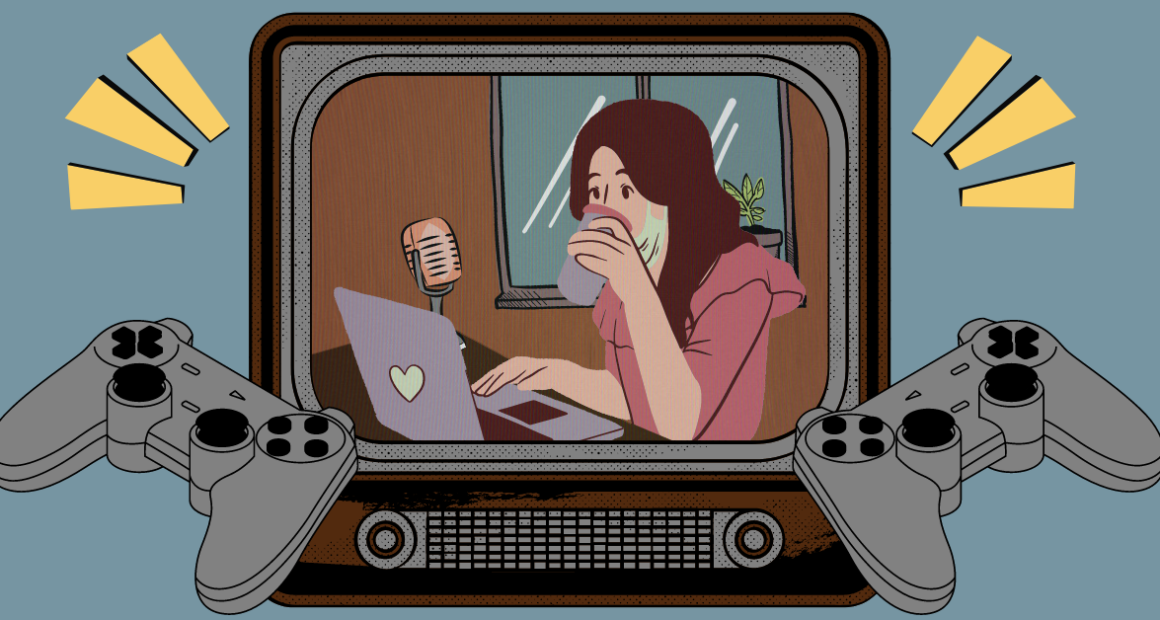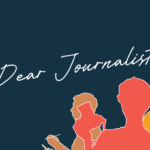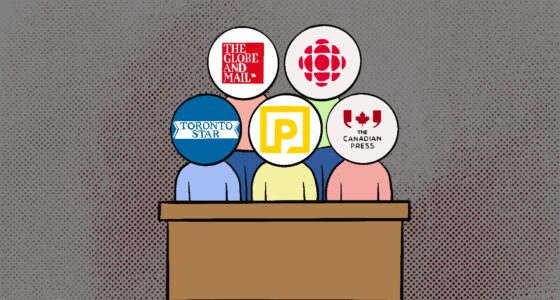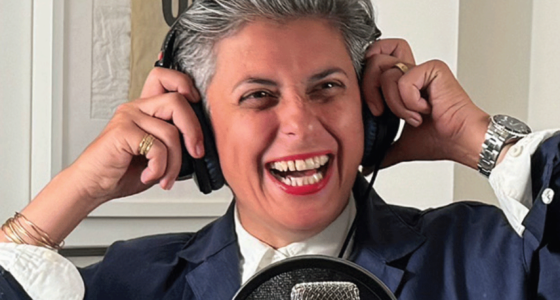Video games are now depicting podcast journalism—and it’s far from pretty

It’s nine in the evening on October 29, 2023. I’ve been toiling away at Marvel’s Spider-Man 2 video game to gather footage for my job as a video game coverage reporter. I just beat the main story, with Venom defeated through the combined might of the two Spider-Men: Peter Parker and Miles Morales. I recline in my rocking chair and watch the epilogue. The game has one more surprise up its sleeve: a depiction of podcast journalism.
Mary Jane Watson (MJ), fed up with her position under J. Jonah Jameson at the fictional newspaper, The Daily Bugle, decides to quit. In the aftermath of the extraterrestrial symbiotes taking over New York City, she begins producing her first podcast, The New Normal. She aims to document how New Yorkers will recover from the chaos. But, as headstrong as MJ is, podcasting isn’t exactly something you just jump into without planning, and people reacted. Gene Park, The Washington Post’s games reporter and critic, for instance, wrote in a post on X, “[E]very profession in the insomniac spider-man stories is surface level. journalists, scientists, social worker, podcaster, police officer, fireman, even high school student. but it’s good that the spider-man part feels right.”
The issue is that Spider-Man 2 fundamentally misunderstands what journalists do. The game’s writers undermine the journalist’s basic craft—telling stories or producing news—by either being vague about the reporting process or depicting something unbelievable. Peter Parker calls MJ an accomplished reporter, yet the only evidence is his word for it. And, in the realm of outlandish, MJ infiltrates a heavily-militarized base just to speak to a source, and tasers soldiers to gain access to classified information.
Prior to the podcast, MJ offered to cover Parker’s mortgage since he was fired from his teaching job. It’s unclear how this generous offer is possible because, one, Jameson was threatening to fire her, and two, her new book detailing the war in Symkaria (a fictional small Eastern European country) has sold 14 copies.
The New Normal helping MJ make ends meet is a stretch because, while podcasting isn’t exclusive to those without a stable source of income, according to Kattie Laur, an award-winning freelance producer, “[It] is rarely anyone’s full-time job.” Laur publishes her newsletter, Pod the North, to help podcast producers figure out “what the heck is going on in this [Canadian podcast] industry.” She also works as a podcast consultant and says the biggest problem is when “people start making a podcast before they even know what it is.”
While producing one might not be a full-time gig, a podcast should not look tossed together. It needs to be more than sitting in front of microphones making conversation. There’s a common industry joke—a group of friends are at the bar and one of them says something funny, so funny, in fact, that another has a brainwave: hey, let’s start a podcast!
And Laur says, sure, starting a podcast is relatively simple. But then the hard work begins: the hours of research and scheduling, the scriptwriting and rewriting, and the editing sessions that can last all night. “People come to me in a space where they’ve hit a plateau,” she says. “They’re, like, ‘I don’t have time to look for more resources to figure out how to get this into the world more. My download numbers aren’t going up. I feel like nobody’s listening to my show.’”
The problem, Laur thinks, is in the follow-through. “The long game is where a lot of people start to burn out.”
Rooked In
Getting a podcast to a professional standard is one challenge. Another is finding the right focus for a podcast because just talking about something and expecting people to pay attention isn’t going to cut it. Jess Schmidt and Ryan Webb settled on a niche—chess and a cheating scandal—to focus their podcast. Together, they produced Rooked: The Cheaters’ Gambit, a monthly podcast series about a scandal involving Norwegian chess grandmaster Magnus Carlsen and American chess grandmaster and Twitch streamer Hans Niemann. Six of the show’s projected 10 episodes are currently available. The first explains what the scandal was exactly. The second, divided into two parts, are profiles of Carlsen and Niemann. Episodes three, four, and five focus on the intricacies of competitive chess.
The two producers describe themselves in each episode as a “good producer / bad chess player” (Schmidt) and a “first-time podcaster / good chess player” (Webb). Despite the difference in podcasting experience, Webb was the one who suggested he and Schmidt produce the podcast. “Jess is a very good editor when it comes to content. I, not so much,” Webb says.
“You’re a good content generator,” Schmidt assures him.
The first episode, “The Scandal,” was released in September 2023. That was a year after the scandal occurred, in which Carlsen, after being beaten by Niemann, dropped out of the Sinquefield Cup and then accused the latter of cheating. Schmidt and Webb spent the year researching, scriptwriting, and figuring out the structure of the show, all while maintaining their full-time jobs. Schmidt, like Laur, is a podcast producer and consultant, and Webb writes closed-captioning for television.
The main problem for the producers was how to shape the narrative. “Trying to condense this entire story into one cohesive hour-long episode is just super-difficult,” Webb says. He and Schmidt recall having to shut themselves in during weekends just to work on an episode. “I’ve cried during most of our productions, because it is a lot of work,” Schmidt says. Their January episode was also delayed because of COVID-19, making it the first deadline they were forced to miss. “I was really torn up.”
Schmidt and Webb had several conversations about how to treat Rooked, with the former wanting to have the same production values as the podcasts she works on, with unique thumbnails for each episode, extensive editing, and interviewing sources. “This is supposed to be something that we both enjoy,” Webb reminded her while in the midst of production. Since there is no funding or sponsorship, the pair set up a Patreon account for Rooked, hoping listeners will support the show financially. “The reason I push myself and us,” Schmidt says, “is because people are listening, want the next episode, and I don’t want to let them down.”
What’s Your Rationale, MJ?
The epilogue of Spider-Man 2 cuts to MJ’s podcast setup, which consists of three elements: her laptop with audio recording software, a microphone with no wire, and MJ herself. After recording her outro, MJ immediately publishes her first episode. No editing, no listening back, no cutting out any awkward breaths or saliva noises—just publish. The recording software says this is a full hour of recording.
While this is laughable, production is not the egregious issue. Rather, it’s the rationale for MJ hosting a podcast in the first place. Her podcast mission statement is to “explore new behaviors, new routines, new thoughts and feelings” after the citywide incident. Yet she fails to explain what makes her the best person to host this podcast. She is one out of millions of New Yorkers affected by the incident—so why her?
Another question Laur asks wannabe podcasters is which ones they listen to. That’s when she finds out that a good chunk of them don’t listen to any. “They really have no idea of what will work well, or they don’t even care. Sometimes, they just want to be famous for what they’re saying and get notoriety around who they are. You can’t be lazy with this stuff.”
Laur also says MJ’s move into podcasting isn’t unrealistic, as it is not uncommon for journalists to do so, especially if they become sources people can trust for certain topics. But for MJ to start with no preparation, no sponsors—no anything—isn’t smart and glazes over the longevity podcasters and journalists need to take into account when developing their work. Then again, it’s not as though Spider-Man 2, let alone entertainment media’s depiction of podcasting in general, sullies the good name of the industry. If anything, it’s humorous to podcasters. Schmidt recalls laughing at the game’s epilogue, which sums up what she believes people typically think of podcasting: putting a mic in front of your face and speaking.
Laur recalls that in the Hulu television show Only Murders in the Building, the majority of in-universe audio production is done on the characters’ phones. This feels weirdly off to her because she’s always at a computer “putting all kinds of little finishing touches on podcasts.” They make it look easy on the show, yet “nobody’s ever editing.”
When it comes to MJ’s podcast, Laur looked up how many podcasts had the same or similar name to The New Normal on Apple Podcasts and iTunes. “There’s definitely a few,” Laur says. “Mary Jane, you’re a journalist. Like, come on, you can be a bit more creative—how many headlines has she written?”
Players never find out because the game never tells you.






